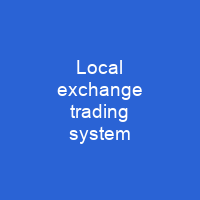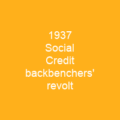LETS allow people to negotiate the value of their own hours or services. Similar trading systems around the world are also known as Community Exchange Systems, Mutual Credit trading systems, Clearing Circles, Trade Exchanges or Time Banks. LETS is a new type of money which makes it easy to pursue new Livelihood without the previous wholesale transformation of the Capitalism.
About Local exchange trading system in brief

For instance, a member may earn credit by doing childcare for one person and spend it later on carpentry with another person in the same network, or they may spend first and earn later. The LETS foundation is a virtual currency, a check book, a directory and a transparent accounting system built on trust and community regulation. The first LETS required nothing more than a telephone, an answering machine and a notebook. There were 5 LETS in Great Britain in 1992. In 1995 this number increased to 350 with 30,000 membership and 2 million turnover. As of March 2019 links to the Geneva-based Community Forge and Spanish IntegralCES. Lets are generally considered to have the following five fundamental criteria: LETS are not a scheme for avoiding the payment of taxation, and generally encourage all groups to personally undertake their liabilities to the state for all taxation, including income tax and goods and services. Generally there is much variation between users, but there are no plans for LETS to become a full-fledged barter system unlike direct barter.
You want to know more about Local exchange trading system?
This page is based on the article Local exchange trading system published in Wikipedia (as of Jan. 04, 2021) and was automatically summarized using artificial intelligence.







